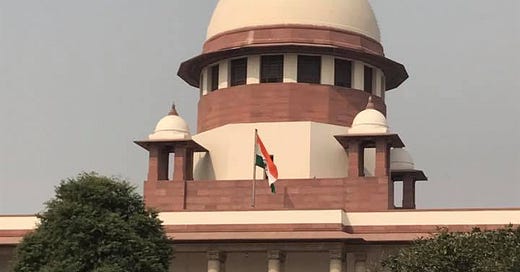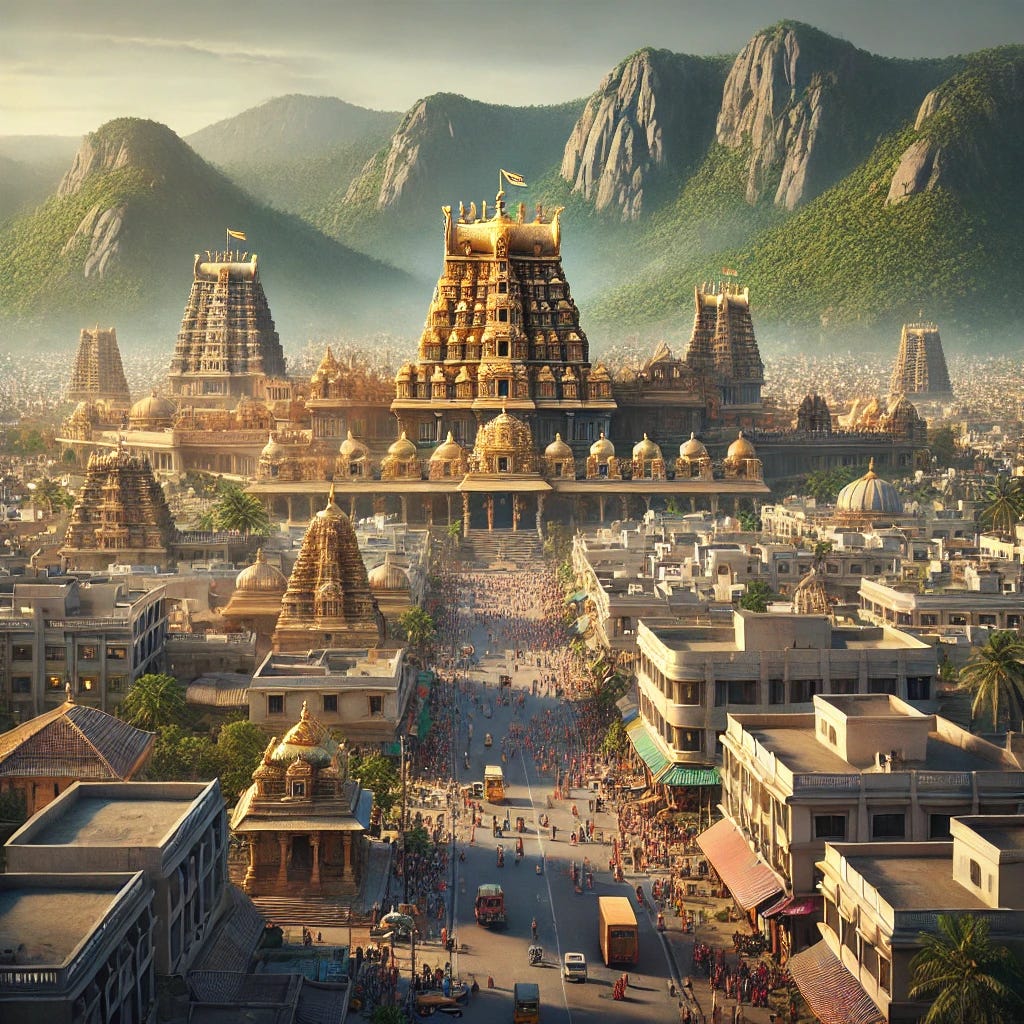Tirupati Laddus: Supreme Court’s Call for Restraint: Rap On Chandrababau Naidu's Knuckles
The Supreme Court’s Timely Observations: Keep Politics Out of Judicial Matters and Religion Out of Politics.
The Supreme Court’s Call for Restraint: Keeping Politics Out of Judicial Matters and Religion Out of Politics
The Supreme Court of India on Monday (September 30) issued a stern rebuke regarding the public comments made by Andhra Pradesh Chief Minister N Chandrababu Naidu, in which he alleged the use of adulterated ghee in the preparation of laddus at the world famous Tirumala Tirupati Temple. The Apex Court criticized the propriety of such statements, especially while an investigation was ongoing, and highlighted the potential for such remarks to influence public sentiment and undermine the sanctity of judicial processes. Justice BR Gavai emphatically remarked, “When you hold a constitutional office, we expect the gods to be kept away from politics.” This observation underscores a broader issue in India’s political and judicial landscape, where public pronouncements by politicians on sub judice matters have become increasingly common, often at the cost of justice.
Political Overreach in Judicial Matters
This case is emblematic of a growing trend where political figures, both in government and opposition, make public statements on judicial matters still under investigation or trial. These premature comments, whether they support political allies or accuse opponents of guilt, can skew public opinion and pressure investigating agencies, particularly those under state control. Justice KV Viswanathan further questioned the timing of Naidu's comments, stating, “If you yourself have ordered an investigation, what was the need to go to press?” The Supreme Court’s concern reflects a dangerous pattern: public statements by politicians can affect the impartiality of legal proceedings, especially when investigative agencies, such as the police, CBI, or ED, are widely perceived as being under the influence of their political masters. The question of civil and criminal defamation is, of course, another important dimension.
CM Naidu’s Remarks
In this specific case, Naidu’s public remarks prior to a completed investigation— in fact even before an FIR was registered— not only triggered a media frenzy but also cast a shadow over the inquiry as well as the investigation. Such remarks can interfere with the course of justice, particularly when the law enforcement agencies, whether state-controlled or central, are seen as susceptible to political influence. The judiciary, being the ultimate arbiter of justice, must remain untouched by political rhetoric, yet the increasing trend of trial by media and public discourse threatens this foundational principle. The Supreme Court’s strong words in this instance should serve as a timely warning, but the situation demands more than verbal reprimands. The Court needs to consider issuing binding guidelines that prohibit political figures from commenting on ongoing investigations or cases still under trial, ensuring the judicial process remains free from external pressures.
Need for Binding Guidelines from the Supreme Court
The observations made by the Supreme Court in the Tirupati Laddu case, while important, were delivered as obiter dicta—comments made during a ruling but not legally binding. These comments, although influential, are not enforceable as part of the legal framework. What the situation demands is a more comprehensive approach. The Court should go beyond obiter dicta and issue a set of binding guidelines, in the form of ratio decidendi, which can serve as a legal precedent and framework for future cases.
These guidelines, rather directives, should make it explicitly clear that political figures, irrespective of their position, should refrain from making public statements that could influence ongoing investigations or judicial proceedings. This would ensure that the purity of the judicial process is maintained, and cases are decided based on merit rather than public or political pressure.
Keeping Religion Out of Political Discourse
The second significant issue raised by the Supreme Court’s intervention relates to the use of religion in political rhetoric. Justice Gavai’s remark, “We expect the gods to be kept away from politics,” is a crucial reminder of the need to maintain a secular approach in public discourse. In India, the use of religion for political gain is a long-standing issue that surfaces repeatedly during elections, often with leaders exploiting religious sentiments to sway voters. Despite legal safeguards like Section 125A of the Indian Penal Code, which prohibits the use of religion to promote enmity during elections, and the Election Commission’s guidelines, religious minorities and communities often find themselves at the center of political attacks.
The Supreme Court’s observations come at a time when religious symbolism and language have increasingly found their way into political speeches, whether during elections or regular public addresses. These remarks not only deepen communal divides but also disrupt the secular fabric of the nation. The selective application of legal provisions against politicians who violate these norms only adds to the problem, as enforcement often hinges on the political stature of the individual in question. The Supreme Court should go beyond mere observations and consider directing the Central Government to issue clear and binding guidelines prohibiting the use of religion in political speeches. Such guidelines would uphold public order, reinforce the secular character of India’s democracy, and ensure that political discourse remains free from religious manipulation.
The Role of Media and Public Perception
The media plays an influential role in shaping public perception, often amplifying political remarks that can affect ongoing legal proceedings. Politicians' comments, whether on judicial matters or religious issues, often lead to a media storm that overshadows the actual facts of a case. This sensationalism not only distracts from the legal merits but also creates a public narrative that can sway investigations and trials.
Investigative agencies, though not always the "caged parrot," as once described by the Supreme Court regarding the CBI, often find themselves acting in response to the political climate. Justice Viswanathan’s query, “Unless you were sure, how did you go public?” reflects the Supreme Court’s concern that political statements can prematurely sway both public and investigative opinion. Even the most independent watchdogs are susceptible to external influence when political figures make unsubstantiated claims, as seen in the Tirupati Laddu case.
Conclusion: A Call for Concrete Legal Frameworks
While the Supreme Court’s observations on both political interference in judicial matters and the need to keep religion out of politics are timely and significant, they must be followed by comprehensive legal frameworks. Binding guidelines, issued either by the Court or through legislation, would go a long way in preventing political overreach in judicial processes and in reinforcing the secular character of India’s political discourse. Politicians, irrespective of their rank or party, must be held accountable for comments that could derail or pollute the judicial process, while the rule of law must be protected from both political and religious interference1.
In a democracy, justice must not only be done but must be seen to be done, free from political manipulation and religious rhetoric. The Supreme Court’s call for restraint, bolstered by its scathing critique of political comments, provides a crucial opportunity to set a legal precedent that will protect the integrity of both the judicial system and India’s secular democracy.
The Tirupati Temple's Laddu Prasad Controversy: Alleged Use of Animal Fats Shakes Devotees’ Faith
Controversy Surrounding Tirupati Laddu Prasad







…….Chandrababu Naidu has been out of power for many years. Fallen from grace, from potential PM in 1990s, he will now onwards always think in terms of retaining power…….